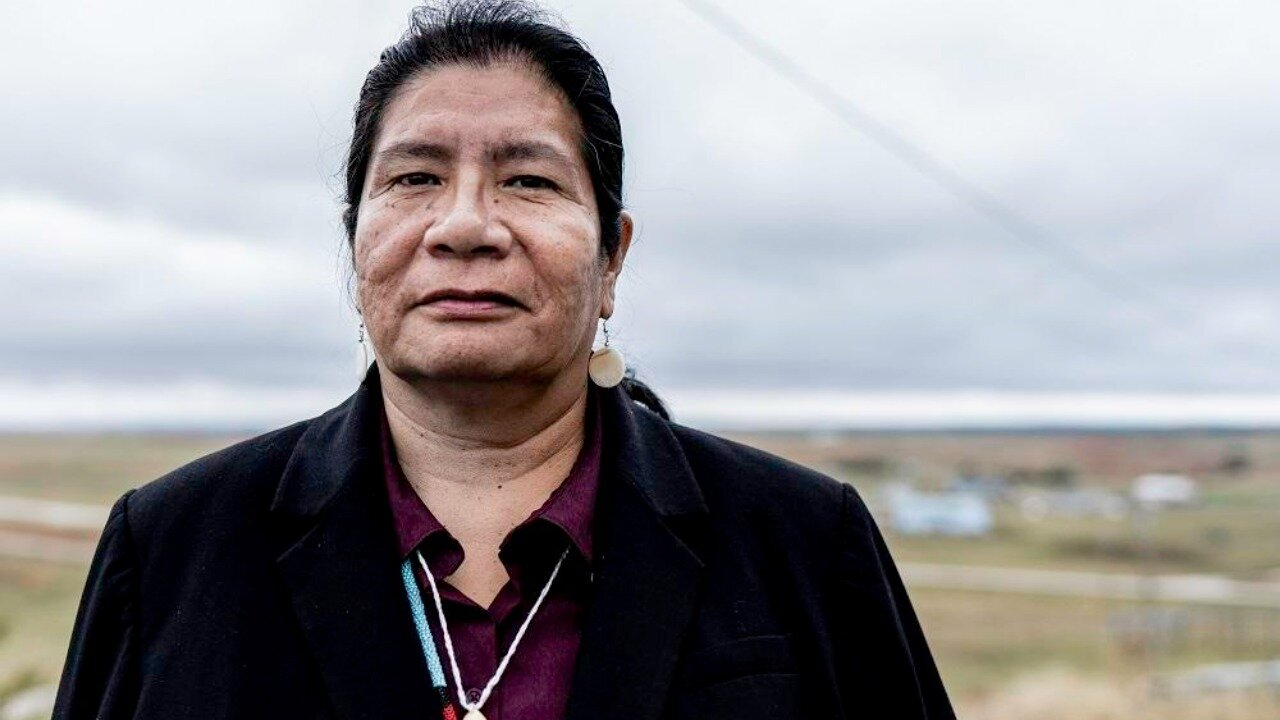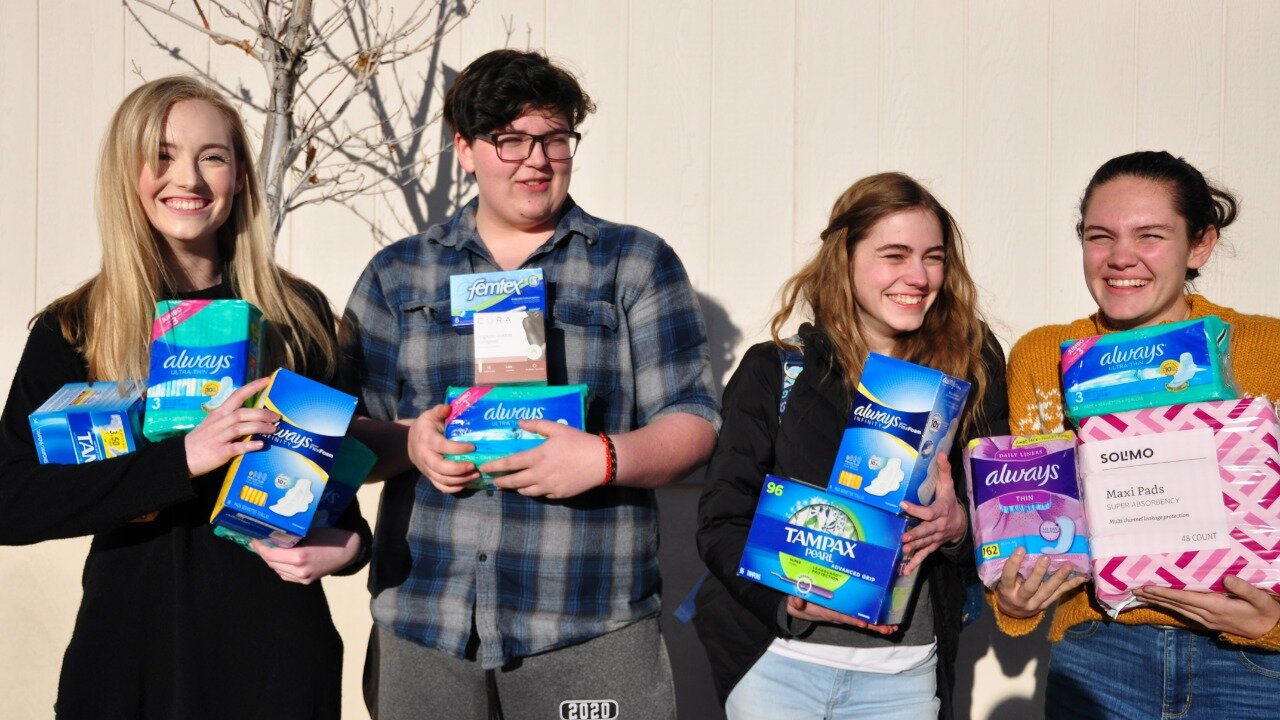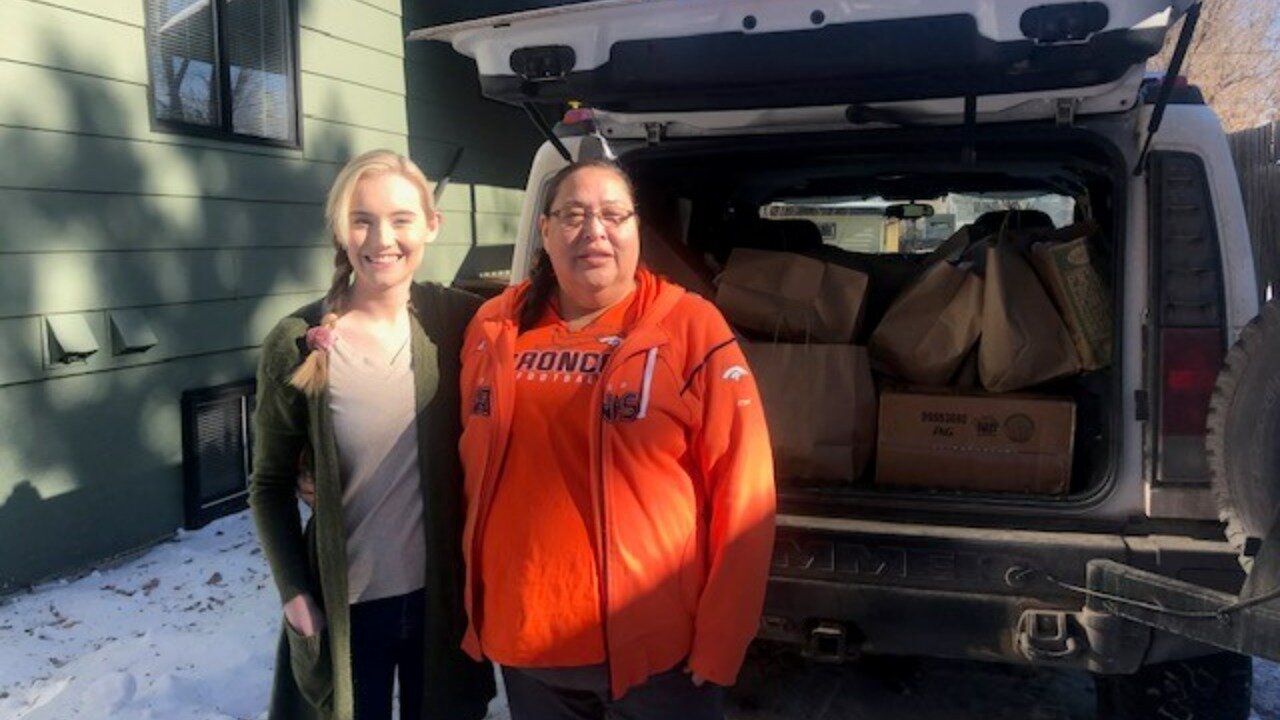Colorado nonprofit tackles period poverty on Pine Ridge Reservation

CASTLE ROCK, Colo. — Across the country, returning to school this year felt like a spark of new hopes and goals. In-person learning finally gives Mackenzie Boyd like so many others the chance to go to classes at Colorado College. The sophomore can also have more opportunities to expand her nonprofit which helps young girls hundreds of miles away, but COVID-19 is still creating barriers that are tricky to overcome.
The Pine Ridge Indian Reservation lies in the southwest portion of South Dakota, covers more than two million acres and is home to the Oglala Sioux Tribe with an estimated population of close to 40,000. Established in the 19th century, it is one of the poorest areas in the country. Friends of Pine Ridge Reservation, an organization created to help this area, says 97 percent of the population lives far below the U.S. federal poverty line. The U.S Census Bureau, meanwhile, reports that about 50 percent of people there live below the poverty line, making it one of the highest levels of poverty in our country as displayed in this interactive map.
“I was really surprised because people still live like we did, and we didn't have electricity or running water. And I was surprised to see they live like that. So then it really touched my heart, you know?” said Darla Black, a member of the Oglala Lakota tribe and resident of the reservation.
Black grew up on the reservation and has spent most of her life serving it. She spent 28 years in law enforcement and most recently was the Vice President of the Oglala Sioux Tribe. During her time in that position she traveled the vast range of the area she felt responsible for. That is when she discovered so many were still living in really tough conditions, the same ones she experienced 40 years ago.
“I was 18 years old when we lived like this,” said Black. "Mind you all those years and people, it was the next generation that were living like they had back then.”
So, during the time she was serving as the vice president, she started doing everything she could to help her community—from providing food, propane tanks, and clothing to any basic need that was often skipped just to pay bills.

“We didn't have money for when I started my moon time—we call it our moon, our monthly time—we didn't have money. So I don't know how my grandmother would do it, but she would end up getting me the pads and the napkins that I needed and, visiting with the people out there, some of the young people, they told me that they can't afford it.”
Unfortunately this extreme poverty and inability to buy menstruation products then means young people will miss school during their moon time. Missing classes once a month then becomes too much to catch up on, so many students drop out. The high school drop-out rate is over 70 percent. But as the Huffington Post reported in 2017, there are no exact numbers on how many students drop out for this reason, but many people on the reservation called it an “inescapable problem.”
“I just heard this from some of the leaders on the reservation and also some of the girls themselves as explaining that, 'Yeah, this happens to me or some of my friends.' And I just knew that I had to do something,” said Mackenzie.
Several years ago, Mackenzie's brother was the first in the family to visit Pine Ridge during a summer camp in South Dakota and saw some of the issues first-hand. Then, the Boyd family started helping in ways they could with small drives or fundraisers like getting Christmas presents for kids who wouldn't get one otherwise.
Over the years, the period poverty issue really struck a chord with Mackenzie, so she honed in on that mission.
“I could try to get them products,” said Mackenzie. “And so that kind of started out with some drives at my school for period products, asking for help from the community in Castle Rock. And then eventually it just became clear that starting a nonprofit was the best way to go about that.”
So as a high schooler, Mackenzie started Project Distributing Dignity, an organization that believes that a period should never be a barrier to education. Volunteers create "Moon Bags" full of products to give to students so they can continue to go to school all month long.
“I really valued my education in my lifetime. I think my parents always taught me the importance of education. And then when I was 12, I had a traumatic brain injury, and so that kind of led to this journey of getting back into school and just realizing how important it was for me,” explained Mackenzie. "For a while I wasn’t really able to pursue my dreams for a completely different reason, but that I know how difficult it must be for these girls to not be able to pursue whatever it is that they want to do with their lives.”
Mackenzie went on to say she's heard how gaining a high school diploma can help girls out of hardship or domestic violence, which happens to American Indian women at a higher rate than any other racial group according to a National Women Against Violence Survey. Something Black unfortunately has also experienced.
“I went into the national guard when I was 18 and then after I returned, I tried to be a homemaker, but I ran into severe domestic violence,” explained Black. “And I eventually walked away from that relationship with my three children. I have a daughter who is my oldest and two sons."
Black considers herself one of the lucky ones to be able to get out of that relationship and be able to support herself on her family. She knows so many others don't have it that good.
“The financial cost of the pads alone and the tampons, a lot of our young young adults are our students really don't can't afford them sometimes. Some of the people live on like a $500 a month income. So sometimes they have to choose between, say a bottle shampoo and a loaf of bread,” said Black.

When Mackenzie started to take on this project, she turned to her fellow classmates and teenagers in Colorado to help the reservation more than 350 miles away. She started with drives at her high school and soon created a board made up of other high schoolers (now in college) and her mom, Kara.
“She understood it was important to me. And honestly it was important to her too. She was just as passionate,” said Kara.
Kara added: “I've done a lot of work on the Pine Ridge Reservation besides with Mackenzie. I've done other things too. And so I have a really good grasp of things that maybe Mackenzie, well, she knows about now through me. But just being able to be that ear to other adults is really helpful.”
So through the two of them and other board members, they collect period products to bring to schools on the reservation. Oftentimes, that means making the six-hour drive themselves. COVID-19 eventually put more obstacles in the way and the best solution was actually Amazon deliveries.

“Because a lot of places won't ship to the reservation. The fact that they have P.O. boxes, I think is one of the big things. But Amazon was the one that was relatively cheap. The shipping was free and it still went directly to the reservation, mostly directly to the schools,” explained Mackenzie.
COVID-19's other hurdle to overcome is when schools shut down, students aren't able to get the donated products easily.
“It was hard to get the products out to them because what we did was we gave it to the schools to distribute,” said Black. They had to figure out how to go around by setting up school distribution centers. Some schools send kits home with students.
Unfortunately, COVID-19 isn't going away any time soon and a high number of cases prompted a new closure of the schools on the reservation. The Oglala Sioux Tribe ordered a 10-day closure of all K-12 schools on the reservation from Sept. 15-28. So the Boyds tell Rocky Mountain PBS they may meet Black in Nebraska so she can deliver the products when the reservation opens up again.
Now that Mackenzie is just getting settled into her sophomore year at Colorado College, she hopes to expand her organization and help the women and girls on the reservation even more after COVID kept her from campus last year.
“I wasn't really meeting people in person and I wasn't really making friends. So it was just tricky to reach out to people,” said Mackenzie. “But now that I'm going back on campus and we'll be able to see people more, I'm hoping to start some projects there. Because it's a big school for activism.”
So far, Project Distributing Dignity has given out more than 80,000 products to 750 students at five schools on the reservation. While Mackenzie, Kara, and the other board members will continue to work with Black and others to increase that number, they hope more people become aware of the challenges women and girls face on Pine Ridge Indian Reservation.
“They deserve to be dignified,” said Mackenzie.
“And not looked down upon,” added Kara. “It's not a handout, it's a help up.”
You can donate to Project Distributing Dignity through their website.
Amanda Horvath is a multimedia producer with Rocky Mountain PBS. You can reach her at amandahorvath@rmpbs.org.